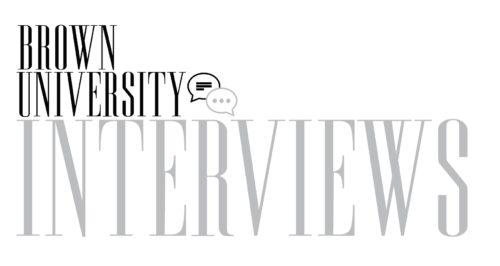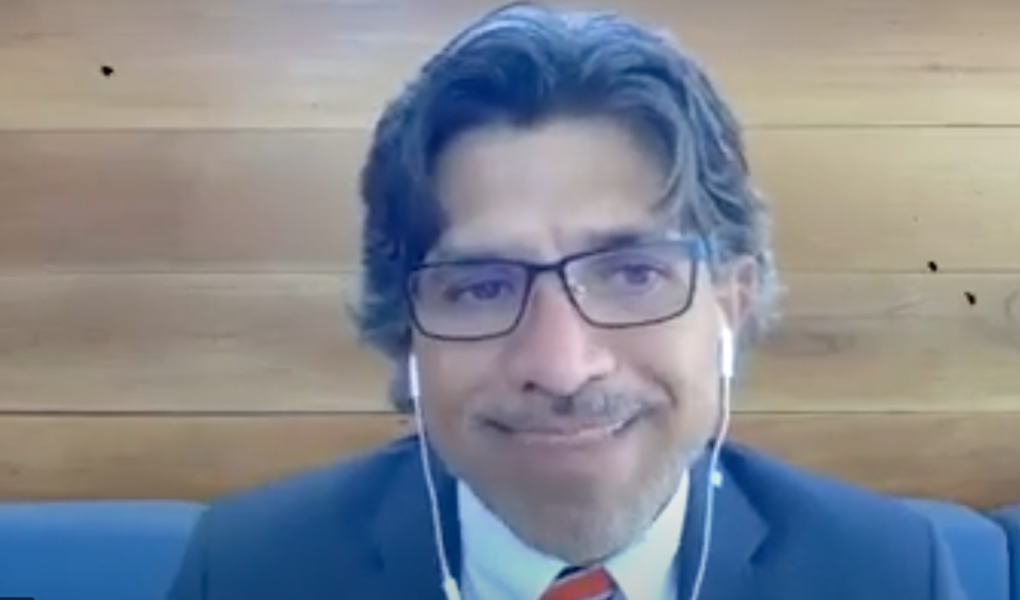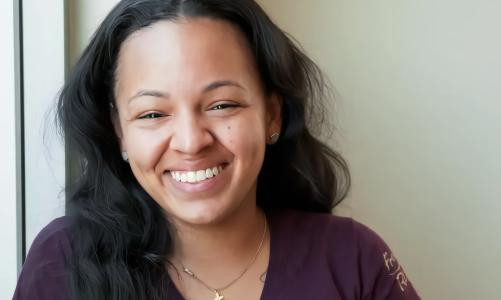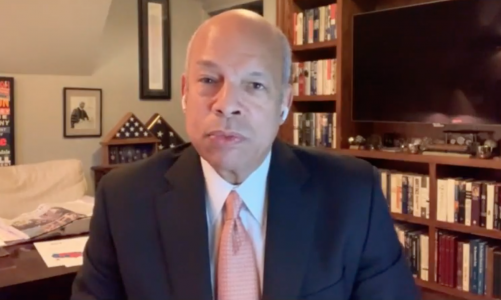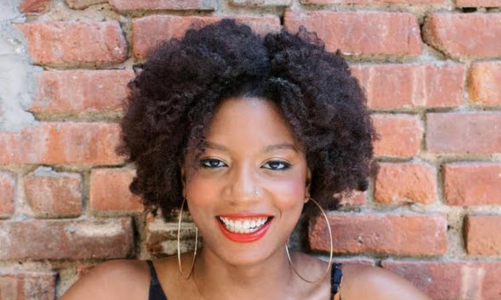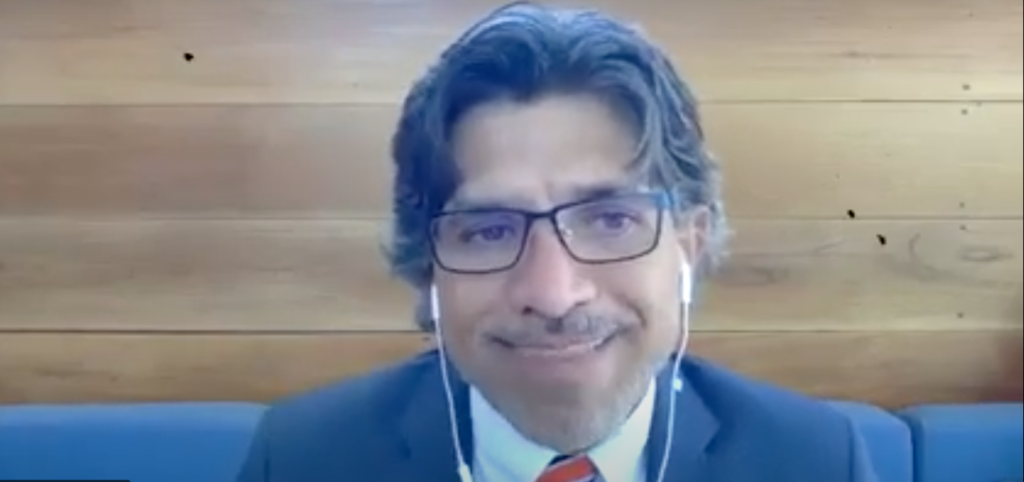
Victor Madrigal-Borloz is a Costa Rican attorney who has been the United Nations’ Independent Expert on violence and discrimination based on Sexual Orientation and Gender Identity (IE SOGI) since 2018. The role of the IE SOGI was created as a result of the most contentious mandate passed in the history of the United Nations, with just four votes deciding in its favor.
The United Nations states that the mandate of the IE SOGI is to, “Explore ways to better protect persons who suffer from violence and discrimination on the basis of their sexual orientation or gender identity.” This goal is primarily pursued by way of individual country visits in which the IE SOGI works with government officials, NGOs, religious leaders, and citizen activists to advance LGBTI (lesbian, gay, bi-sexual, transgender, and intersex) equality in the host nation. Madrigal-Borloz’s most recent country visit was to Tunisia in June 2021. The preliminary report can be found here.
From 2013 to 2016 Madrigal-Borloz was a member of the UN Subcommittee on the Prevention of Torture and ill-treatment of LGBTI persons. He came to the United Nations after serving as Head of Litigation and Head of Registry at the Inter-American Commission on Human Rights and is currently the Eleanor Roosevelt Senior Visiting Researcher at Harvard Law School. He lives with his family in Washington, D.C.
Amelia Spalter: At brass tacks, what concepts does the IE SOGI (Independent Expert on violence and discrimination based on Sexual Orientation and Gender Identity) work to promote and what misconceptions does it exist to dispel?
Victor Madrigal-Borloz: The mandate [of the IE SOGI] is based on the idea that dialogue plays a fundamental part in understanding social change. But I also explore the root causes of sexual orientation and gender based violence and discrimination. Over the course of my work exploring root causes, I have developed a number of working theories: one of which is the idea that certain institutional drivers do a disservice by preserving certain ways of seeing society.
For example, seeing society as being patriarchal with preconceived notions of men’s and women’s roles in society. A large part of our work is to understand how that structure perpetuates violence and discrimination, and in fact, actually enhances it. Those certain institutional drivers include a triad that I have come to describe as “crime, illness, and sin.” It is the idea that criminalization, patriarchalization, and demonization are ways to ensure that the moral nature of LGBT life is questioned on an everyday basis.
How do you frame discussions of LGBT equality with government officials from nations that have declared a state religion that rejects equal rights?
To these faith-based leaders, I always say, “I don’t speak the language of theology. I speak the language of human rights.” That is a language that not only establishes a series of understandings about the ability of persons to have a religion and not be discriminated against on the basis of that religion, but also to not discriminate against others as a result of that religion.
I also have had the extraordinary experience of talking to so many citizens who have expressed to me that one of the fundamental grievances in their pursuit of happiness is the notion that this faith-based approach to the perpetuation of violence and discrimination fundamentally denies them their ability to be spiritual beings. Of course, I think a large part of the agenda for fighting violence and discrimination now relates to the creation of conditions in which LGBT people can reclaim their identity as spiritual beings. These are, of course, very intimate, very personal endeavors. So, they need to exist in environments where persons do not need to fear retribution or violence because they are seeking to reclaim their identities as simultaneously an LGBT person and spiritual being.
These crevices are where the mandate is called to reflect on how institutional drivers and, in particular, international human rights law, has a role to play in promoting social inclusion and deconstructing violence. But I am actually quite privileged to work with a large network of faith-based organizations that approach from the point of view of inclusion. They have developed understandings of social inclusion that are completely coherent between their theological platforms and the idea of human rights.
Have you ever encountered a country that was wholly inflexible on SOGI (sexual orientation and gender identity) equality, or at the other extreme, arrived to find leaders ready for instant change?
No one is neutral on anything relating to sexual orientation or gender identity. So, it is never, “Entirely one side or the other.” It is not black and white, it is not even a series of greys. When painting a picture of these issues you are working with a scope that covers the full range of colors.
Let me give you just one example. As you have very rightly said, there are nine countries in the world that hold the death penalty for [certain sexual orientations and gender identities] right now. Five of them implement the death penalty [for being LGBT] on a regular basis. But you also have sixty other countries that maintain “criminalization” of homosexuality, lesbianism, or some forms of gender identity, on their books. Sometimes the penalty can be as much as twenty five years in jail. So, a staggering two billion people are living today in criminalized environments. That’s almost a third of the world’s population.
In countries that have rejected identity-based criminalization, there may still be institutional drivers and structures that maintain criminalization [indirectly.] For example, it’s very common that legislation on good morals or vagrancy is utilized to disproportionately impact LGBT persons.
Then you have countries with “enabling” legal environments. though that is often only one thread. For example, there are countries such as Pakistan that are on the very regressive end of the measure when it comes to sexual orientation, but on the very progressive end when it comes to gender identity. Countries like Pakistan have extremely forward legislation when it comes to trans lives, for example, and have long acknowledged the existence of third genders. It is really never black and white.
It is very difficult to draw one picture of the world where you have certain countries on this side and certain on the other when it comes to [LGBT rights] and my mandate. That provides me with points of departure that are actually quite rich when it comes to my mandate because it is very often the case that even if the country takes an aggressive stance on one issue, it may have a more progressive stance in relation to other issues. To be quite frank, very few countries will say that they believe that a person should be subjected to violence and discrimination based on their sexual orientation or gender identity. So, that also provides a good point of departure.
You see, I work with progressive individuals within regressive institutions and with progressive institutions within regressive environments. The reality is that you always will find persons who are interested in understanding how to create societies that are more prone to inclusion.
You have shared that when the IE SOGI mandate was introduced in the United Nations, entire continents coalesced against the idea. The mandate was passed by just four votes, making it the most contentious mandate approved to date. How have the representatives’ perceptions of the mandate changed now that they have seen it in action?
The renewal of the mandate was effectuated in 2019. At that stage, a mere twelve countries voted against the mandate. There was no region in the world that coalesced in full against the mandate. That is to say that, when provided with evidence that the people under their jurisdiction are suffering violence and discrimination, there was a critical mass within states that actually wanted to ensure that the issues were addressed. We may have fundamental points of disagreement in relation to what the philosophical foundation for such protections should be, but the idea of doing work to deconstruct violence and discrimination is a universally powerful driver.
It is very often the case that we will have a disagreement as to whether or not diversity must be protected. But I have yet to find interlocutors that will agree that people under the jurisdiction of their state should be tortured or killed. We know some do exist because we know the reality of [those upholding the existence of] criminalization. But it’s not a position that any entity that pursues a serious standing in the international world today is able to take with any kind of seriousness. You can actually see it in the records of states that reversed their votes. What they have said specifically at the floor of The Human Rights Council is that, “The mandate has provided the evidence.” So, denying diversity, denying the very existence of LGBT people, will condemn the leaders who actually use that expedient tactic to being perceived as quite spurious.
Which is considered first when making policy recommendations to a given country, changing attitudes then passing legislation, or effecting legislation in hopes of the society catching up over time as a result?
Yes and yes. There are a number of principles that need to be respected when understanding how to effect political change. There are contexts where parliament is simply deadlocked on issues of the furtherance of rights of LGBT persons. In those contexts, it has been found that the judiciary has been a fantastic institutional driver for the acknowledgment and furtherance of rights.
In Argentina, for example, most of the recognition of the rights of trans persons came through the judicial process. I need not tell you that this is one of the ways that marriage equality has been driven through as well, even in countries such as the United States.
In other cases, it will be public policy. European countries are very amenable, and in fact, it’s usually the government’s executive branch that carries out a concerted set of actions through education, social inclusion, measures in employment, housing, economic indicators, and other political participation that drives societal change. In other cases, it will be [the judicial branch] through the issuance of anti-discrimination legislation. I believe in representation [from the top down], so you also need to listen to local activists’ understanding of what will work best in every case. Essentially, the appropriate solution is different for each particular context.
What has been the single most effective policy or messaging campaign for furthering LGBT equality?
There are theorists and activists in the LGBT community, particularly in the United States, that attribute a fundamental ability for social change to marriage equality. I am always very interested in seeing how the idea of “respectability” through marriage equality, if you may qualify it that way, actually does significantly change the drivers of social inclusion. For example, certain countries in Latin America have seen accelerated social inclusion indicators after the introduction of marriage equality.
The way certain deeply rooted institutions, such as “family” impute values that act as accelerants in social inclusion is a very interesting thing. That is also the case with political participation. If you have significant exposure of political actors to the LGBT community, or actors who are even LGBT themselves, you will immediately create an accelerant towards social change.
Then, of course, you have media and entertainment industries. In the United States, and I wouldn’t say this is true of all of the world, but in the United States, people speak of the “Will & Grace effect.” You’re likely far too young to know this but there was a series called Will & Grace that was the first to portray mainstream LGBT lives as part of what one would call “an agenda of social desirability.” People still speak of the great impact of Will & Grace in social culture. How all of that works together is part of a very, very interesting dynamic among societal relations. These are but a few points of entry, however, I hope you can see how they each work in tandem to stimulate social participation.
You have been both commended and questioned for making a point to involve the entertainment industry in activism in your capacity as IE SOGI. How did that idea come about?
We’re beginning to see evidence that holding great societal actors, such as the entertainment industry, to account is actually yielding significantly positive results. Take a look, for example, at the great social inclusion campaigns in Latin America over the last five years. The government has worked in coalition with the [news] media and entertainment industries to promote the idea of using popular mediums to project positive images of LGBT life. This is a stark contrast to the cheap, laughable images of the gay man or the lesbian woman or the trans person that were always subjected to ridicule. Through accessible mediums such as [film and television] people begin to understand how textured and rich and aligned with the breadth of the human experience the existence of LGBT life is and can be.
Exposure is important. Visibility is important. That’s why the figure of “coming out of the closet” is meaningful to so many people. Because at the end of the day, if you quantify everybody who loves, or is close with, or just feels strongly in favor of an LGBT person, you are looking at the whole world population. But up until now, it has been socially acceptable, even desirable, to look the other way and actually pretend that their sexual orientation was not there or that their gender identity wais not there. But when it is visible, when it is made compulsory by popular culture to actually relate to [one’s sexual orientation or gender identity], you find that the arc of history bends towards acceptance and inclusion. Why? Because it becomes so obvious that LGBT people are everywhere and are a valuable part of the social fabric.
In a similar vein, social media has become a contentious change agent. Some say it continually broadens the horizons of activism and community building, others say the vitriol and false information it generates negates those benefits. What role does social media play in the fight for SOGI equality from where you sit?
The complexity of social media comes from the speed at which the communication is happening. For example, say a Tweet is issued. If one has enough followers, the Tweet will have been seen by one hundred thousand people in the first minute. So the question becomes, “How do you subjugate the possibility of harm when this form of media operates at such a pace?”
We are seeing the emergence of “responsibility boards” at many of these companies, looking at frameworks for ensuring responsibility in relation to dissemination of content. Facebook has been one of the last ones to create a board that looks at responsibility in relation to dissemination of content.
I am working with some of the advisers that are involved in the creation of these boards to try and understand what the possibilities of impact, both negative and positive, are from social media. [We also look at] how to create understanding using the international human rights framework for freedom of expression to understand how issues such as ulterior responsibility work. We all know that social media is here to stay; it is not something that can just be shut down. As a matter of fact, it is not desirable for it to be shut down.
What is the most profound struggle for SOGI equality activists right now?
For various reasons, support of LGBT activism around the world has suffered a blow. One of them is because organizations are less able to implement activities [under the conditions of COVID-19]. Charitable donors are usually congregated through fundraising activities [and those are more difficult to stage online.] The courts are also working slower. Everyone in every sector’s ability to impact change and achieve consensus is a lot slower. It is as though the pandemic has pushed us into an alternate dimension.
And yet, social media content and news cycle messaging are moving a lot faster. This has created dissonance, particularly in the work of LGBT human rights defenders, that is enormously worrisome to me. Support, particularly financial and political support, are fundamental in relation to these issues.
I am extremely happy to have heard the very explicit place that LGBT activism has in the agenda of the Biden-Harris administration because that will be necessary going forward. Stakeholders such as the US State Department and USAID [United States Agency for International Development] will be fundamental in ensuring that there is energy contributed from the United States. Of course, in my capacity as IE SOGI I look at the whole world, but I focus on [these particular actors] because the most relevant context to you is likely the United States.
There is just one IE SOGI in the world at any given time, and you are only the second in history. How did you find yourself holding such a prestigious and specific job?
I entered law school when I was 16 but then I took a gap year in the middle and went to Australia. When I came back I left law school and actually pursued architecture for three years before ultimately returning to complete law school. I then got a Master’s in international banking law and was off to become a banking lawyer. But immediately after I graduated I happened to have six months of free time before my job in that field was due to start, so I did an internship at the Inter-American Court of Human Rights, which happened to sit in Costa Rica, where I’m from.
I just thought it would be a fun thing to do, but after those six months, I had fallen absolutely in love with the idea of human rights as a professional path. I was lucky enough to be offered a job as an attorney at the court. That is how I found my way, but it was wsa a very, very long nine years from the moment that I first started law school to the point that I ultimately connected with the field that I truly found professional fulfillment in. I hope my story can serve as an inspiration for anyone who does not quite yet understand that sometimes it is necessary to take a long, tortuous road in order to arrive at where you’re really supposed to end up.
The IE SOGI does not receive a salary of any kind. To be blunt, why is someone with your qualifications working for free?
[As to why the job does not pay,] the regulations within the system of special procedures are very particular. As to why I do it anyways, well, let me take you to where it started. I was working for the Inter-American Commission on Human Rights, which sits in Washington, D.C. I ended up at a session of the Organization of American States Permanent Council where the resolution on sexual orientation and gender identity was being negotiated. A component of that resolution was a mandate for the commission to concern itself with the situation of violence and discrimination based on sexual orientation and gender identity.
So, I went back to my boss and said, “It seems that we’re going to need to support the commission when it concerns itself with these issues.” And he essentially said, “Ok, do you want to take a stab at it?” I always joke with him because I don’t know if he thought I was well suited because I was the only out-gay person at the commission, or if he actually felt that I had real expertise on the matter. If it’s the latter, he was sorely mistaken, because I didn’t have any.
I ended up working on that project for a number of years and [on the basis of that work] The Inter-American Commission created the first-ever rapporteurship on LGBT rights existing in any regional or global organization. Because of my involvement, I witnessed strategic discussions in which some actors began to throw around the idea of a special rapporteur on LGBT rights of the UN system.
I would invite you to imagine what that meant to me after all of this time. I remember sitting in the discussions thinking, “That’s it, that is my dream job.” But it was all just discussion, no such job existed at that time. So, can you imagine when, ten years later, the job was actually created and it was offered to me? I mean, applied for it, it was a process, but it was and is an enormous privilege. On that note, I thank you for your interest in the mandate. It is very, very, very rewarding for me to know that people are following up on the work of the mandate.
There are many components to what this job means for my career in human rights, but when you come to a point in your career where you realize you actually have unique value to add to the world through your work, it is meaningful on a personal as well as professional level. I would have never thought twice about taking this job, even though I do it for free. I would pay to have the privilege of doing this job.
*This interview has been edited for length and clarity.
